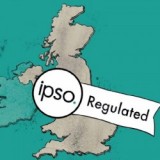 A father whose daughter was badly injured in a car crash has had his complaint about a regional daily publishing the story without his consent rejected by the press watchdog.
A father whose daughter was badly injured in a car crash has had his complaint about a regional daily publishing the story without his consent rejected by the press watchdog.
Paul Wood claimed the Grimsby Telegraph had intruded into his and his family’s grief and shock after publishing a story aboutthe accident.
Mr Wood said he had not responded to an enquiry from the Telegraph prior to publication, claiming the newspaper should have understood this to mean that he did not want the story to be run.
But IPSO found no need on the part of the Telegraph to obtain his consent before publishing.
The story in question reported that Mr Wood’s daughter had initially been in a coma after the incident and was now in a “dream state” with potential brain damage.
It also detailed police appeals for witnesses to come forward and contained several comments made by Mr Wood and a close friend of his daughter on Facebook, which thanked friends and family for their support and gave updates on the woman’s condition.
Complaining under Clause 1 (Accuracy), Clause 2 (Privacy) and Clause 4 (Intrusion into grief and shock) of the Editors’ Code of Practice, Mr Wood said his daughter was 20, not 19 as reported, and the Telegraph had inaccurately reported the place where she lived.
He told IPSO his Facebook had been set to private and therefore his comments were private and should not have been used, adding that it was an invasion of privacy to use photographs from social media and to run the story without the family’s consent.
Mr Wood further expressed concern that the Telegraph did not remove the story from its website when he complained, and that other newspapers had then reported on it.
He also said that the paper had acted without sensitivity because a family member was told by the Telegraph that his other daughter had spoken to a reporter when she had not.
Denying a breach of code, the Telegraph said it was willing to correct the online story but did not believe the difference in age and the incorrect address constituted significant inaccuracies.
The details of the incident had come from police press releases and public social media comments, which it had been able to see due to the Facebook page of Mr Wood’s daughter’s friend not being private.
The Telegraph apologised for the distress caused by the publication of images showing the location of the accident, but noted that these were taken from Google Maps using the location that had been published in the police press report.
IPSO found the tone of the story was not insensitive, adding that Mr Wood had put his comments in the public domain and they contained no information about which he had a reasonable expectation of privacy.
It added the errors in the story were not significantly misleading within the context of the story.
The complaint was not upheld, and the full adjudication can be read here.
Other recent IPSO cases involving regional newspapers include:
Gallagher v Lincs Free Press
Janet Stacey, acting on behalf of Zack Gallagher, complained to the Independent Press Standards Organisation that Lincs Free Press breached Clause 1 (Accuracy) of the Editors’ Code of Practice in a court story which reported he had been fined for possessing cannabis after being arrested on unrelated matters.
Gallagher said the cannabis had been found in his possession at his girlfriend’s house and not in his home, which he said was significant as he had then been evicted by his landlord from this house.
The notes taken by the Free Press court reporter stated that “premises” had been searched and did not conclusively state in whose house the cannabis had been found.
The Free Press considered that any impact on the man’s life was due to his conviction for the possession of cannabis and not the assertion that his personal home had been searched, but offered to publish a clarification.
IPSO found the Free Press had made clear the nature of the conviction and the fine, and in this context, reporting Gallagher was at his own home, or at another premises at the time of his arrest for the possession of cannabis, was not a significant inaccuracy.
The complaint was not upheld, and the full adjudication can be read here.
Glasgow City Council v Glasgow Times
Glasgow City Council complained to the Independent Press Standards Organisation that the Glasgow Times breached Clause 1 (Accuracy) of the Editors’ Code of Practice om a story about a Freedom of Information request submitted to the authority regarding its expenditure on stationery.
The council said it was misleading to report that the spending had been on “on pens, pencils, and paper-clips” and “on notepads, staples, and sticky notes” because it had advised the Times that the spending was overwhelmingly on paper products.
The Times said it was simply using those examples as illustrative of the types of stationery items the money would be spent on, adding it could not be specific about what the budget had been used for because it had not received a breakdown.
The paper also noted that as the council’s comment had been included within the story, it was clear to the reader that the spending was on stationery in general.
The Times offer to publish a correction to amend the story to make clear that they did not have a breakdown of the information, and include paper as one of the items bought.
This resolved the matter to the council’s satisfaction, and the full resolution statement can be found here.





 Follow HTFP on Twitter
Follow HTFP on Twitter